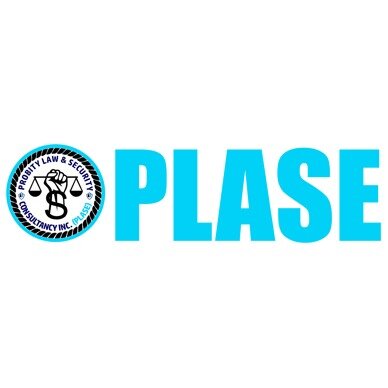Best International Trade Law Lawyers in Liberia
Share your needs with us, get contacted by law firms.
Free. Takes 2 min.
Or refine your search by selecting a city:
List of the best lawyers in Liberia

Alliance Certified Public Accountants, Inc. (Alliance CPAs, Inc.)
15 minutes Free ConsultationAbout International Trade Law in Liberia
International Trade Law in Liberia is a crucial aspect of the nation's legal framework, designed to regulate cross-border commerce and ensure compliance with international trade standards. Liberia, being a member of the World Trade Organization (WTO) and the Economic Community of West African States (ECOWAS), aligns its trade regulations with global standards to facilitate trade, promote economic growth, and maintain healthy diplomatic relations. The country leverages its strategic coastal location and rich natural resources to engage in international trade, necessitating robust legal frameworks to support its trade activities.
Why You May Need a Lawyer
Navigating the complexities of International Trade Law can be challenging. Individuals and businesses may require legal assistance in several situations, such as:
- Establishing import and export businesses in Liberia
- Negotiating international trade contracts
- Complying with local and international trade regulations
- Resolving trade disputes or commercial disagreements
- Understanding tariffs, trade barriers, and customs procedures
- Dealing with intellectual property rights related to international trade
- Facilitating international investments and trade finance
Local Laws Overview
Liberia's trade regulations are influenced by its commitments to international agreements and regional trade blocs. Important aspects of the local laws relevant to International Trade Law include:
- Import and Export Regulations: Governed by the Ministry of Commerce and Industry, these laws oversee licensing, tariffs, and trade restrictions.
- Customs Procedures: Handled by the Liberia Revenue Authority, detailing procedures for importing and exporting goods.
- Investment Promotion: The Liberia National Investment Commission provides guidelines to encourage foreign investment and ensure fair trade practices.
- Intellectual Property: The Liberia Intellectual Property Office manages patents, trademarks, and copyrights to protect innovations related to trade.
- Dispute Resolution: Methods set out for resolving trade disputes, whether through litigation or alternative dispute resolution mechanisms.
Frequently Asked Questions
What is the role of the Liberia Chamber of Commerce in international trade?
The Liberia Chamber of Commerce promotes economic activities, supports the interests of businesses, and serves as a bridge between the government and the private sector in trade matters.
How can I address an international trade dispute?
Disputes can be addressed through negotiation, mediation, arbitration, or legal action. Consulting with a lawyer specialized in international trade is advisable for exploring the best avenues for resolution.
Are there any specific import-export restrictions in Liberia?
Yes, Liberia has regulations on certain goods due to health, safety, and security concerns. It is essential to check with the Ministry of Commerce and Industry for specific restrictions and prohibited goods.
How does Liberia handle intellectual property rights in trade?
Liberia protects intellectual property through the Liberia Intellectual Property Office, ensuring compliance with international treaties and agreements.
What are the documentation requirements for importing goods into Liberia?
Commonly required documents include the bill of lading, commercial invoice, packing list, certificate of origin, and any licenses or permits relevant to the goods.
What tariffs exist for products imported into Liberia?
Import tariffs vary based on product classification. The Liberia Revenue Authority provides updated schedules, and a lawyer can assist with understanding applicable duties.
How do I establish a foreign trade business in Liberia?
Individuals need to register with the Liberia Business Registry, obtain necessary licenses, and comply with local business and trade regulations.
What role does the WTO play in Liberian trade law?
The WTO provides a framework for trade agreements and dispute resolution that Liberia adheres to, ensuring that its trade policies align with global standards.
Can trade sanctions affect business in Liberia?
Yes, economic sanctions imposed by international bodies or foreign nations can impact trade activities. Legal advice is crucial for understanding how sanctions could affect specific business operations.
What is the process for resolving trade disputes under ECOWAS regulations?
Dispute resolution mechanisms include arbitration and court litigation under the ECOWAS framework, aimed at facilitating amicable settlements among member states and businesses.
Additional Resources
Several resources and organizations can assist those seeking guidance on International Trade Law in Liberia:
- Ministry of Commerce and Industry: Provides information and support on trade regulations.
- Liberia Revenue Authority: Offers insights into tax and customs regulations.
- Liberia Intellectual Property Office: Guides on protecting intellectual property.
- Liberia Chamber of Commerce: Acts as a support system for businesses in the trade sector.
Next Steps
If you require legal assistance in International Trade Law, consider taking the following actions:
- Consult a lawyer specializing in International Trade and Commercial Law.
- Gather all relevant documentation related to your trade activities.
- Contact local trade organizations for guidance and support.
- Stay informed about any changes in international and local trade laws.
Lawzana helps you find the best lawyers and law firms in Liberia through a curated and pre-screened list of qualified legal professionals. Our platform offers rankings and detailed profiles of attorneys and law firms, allowing you to compare based on practice areas, including International Trade Law, experience, and client feedback.
Each profile includes a description of the firm's areas of practice, client reviews, team members and partners, year of establishment, spoken languages, office locations, contact information, social media presence, and any published articles or resources. Most firms on our platform speak English and are experienced in both local and international legal matters.
Get a quote from top-rated law firms in Liberia — quickly, securely, and without unnecessary hassle.
Disclaimer:
The information provided on this page is for general informational purposes only and does not constitute legal advice. While we strive to ensure the accuracy and relevance of the content, legal information may change over time, and interpretations of the law can vary. You should always consult with a qualified legal professional for advice specific to your situation.
We disclaim all liability for actions taken or not taken based on the content of this page. If you believe any information is incorrect or outdated, please contact us, and we will review and update it where appropriate.
Browse international trade law law firms by city in Liberia
Refine your search by selecting a city.











